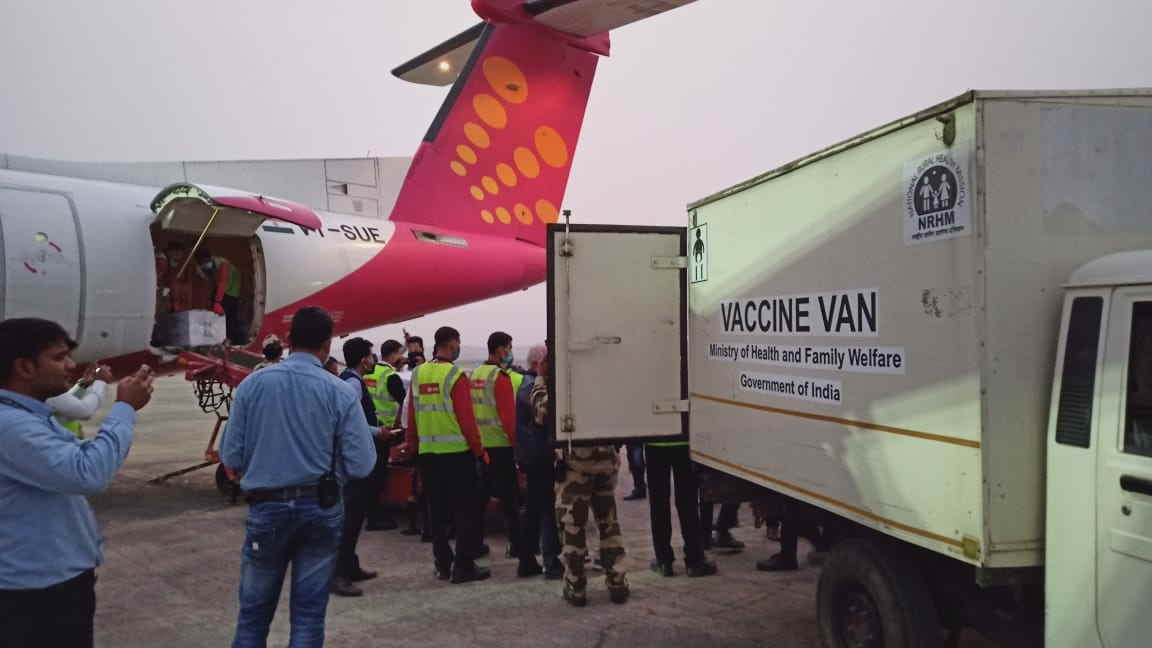

India first flew emergency medical supplies and personnel to Kuwait last year in April as part of Humanitarian Assistance and Disaster Relief (HADR) to the Gulf countries.
<p>
India has reinforced its extended neighbourhood doctrine by exporting three million doses of Covid-19 vaccine to Saudi Arabia.</p>
<p>
In an interview with Reuters news agency, Adar Poonawalla the CEO of the Pune based Serum Institute of India (SII) said that Covid-19 vaccine doses priced at $5.25 each will be delivered in about a week&rsquo;s time.<br />
The shipment is being made on behalf of British pharma giant AstraZeneca with whom SII has an agreement to manufacture the vaccine. SII, the world&rsquo;s biggest vaccine manufacturer, is also supplying 1.5 million doses to South Africa.</p>
<p>
Analysts say that Saudi Arabia is the flagship nation of the six nation Gulf Cooperation Council (GCC). The Made-in-India vaccine can also find a market in some of the other GCC countries which are part of India&rsquo;s high priority Extended neighbourhood policy.</p>
<p>
&ldquo;It is heartening that India is reaching out to the Gulf countries. Given our deep strategic interests in the region, which has a 10.5 lakh Indian population, short geographic distance and reliance on the region for energy security, the Gulf should be called our neighbourood and not extended neighbourhood,&rdquo; Talmiz Ahmad, former Ambassador to Saudi Arabia and Oman, had earlier told <em>The Hindu</em>.</p>
<p>
India, the vaccine hub of the world is now stepping into the next level of not only become part of a manufacturing supply chain but also a candidate for world class Research and Development. &nbsp;&rdquo;There&rsquo;s huge international demand for our vaccines,&rdquo; Foreign Secretary Harsh Shringla told Bloomberg TV in an interview. &ldquo;We expect to see more global players cooperating with their Indian counterparts in the pharma and healthcare sectors. This is likely to go beyond shifting parts of supply chains to India. We expect to see collaborations, manufacturing and R&amp;D tie ups in this field.&rdquo;</p>
<p>
India&rsquo;s focused outreach to its extended neighbourhood was scaled up at the onset of the Covid-19 pandemic.</p>
<p>
India first flew emergency medical supplies and personnel to Kuwait last year in April as part of Humanitarian Assistance and Disaster Relief (HADR) to the Gulf countries. Apart from Kuwait where India&rsquo;s 15-member &ldquo;rapid response&rdquo; medical team stayed for around two weeks to assist in testing, treating and training Kuwaiti healthcare professionals, New Delhi had also reached out to Bahrain and the rest of the GCC grouping, following Prime Minister Narendra Modi&rsquo;s telephonic conversation with the heads of all the six countries.</p>
<p>
India had swiftly cleared export to Bahrain of Hydroxychloroquine (HCQ). Besides, in a MEA readout of the Prime Minister&rsquo;s conversation with the Sultan of Oman, both countries agreed to &ldquo;extend all possible support to each other in dealing with the crisis&rdquo;.</p>
<p>
HCQ had then emerged as a strategic asset, which had mainstreamed India in the global fight against the pandemic.In an article that appeared in the Saudi daily <em>Arab News</em>, India&rsquo;s ambassador to the Kingdom said that Riyadh was looking for 10 million doses from SII.</p>
<p>
Ninety-two countries, across the globe &nbsp;have so approached India for Covid-19 vaccines.</p>
<p>
&nbsp;</p>
<p>
&nbsp;</p>
<p>
&nbsp;</p>
<p>
&nbsp;</p>
<p>
&nbsp;</p>
<p>
<br />
&nbsp;</p>
Prime Minister Narendra Modi had a "fruitful conversation" with Finnish President Alexander Stubb on Wednesday…
US Vice President JD Vance is scheduled to visit India next week. He will meet…
In a first, Indian Railways has installed an ATM on a trial basis -- on…
Commerce Minister Piyush Goyal met a delegation from Elon Musk-owned satellite internet services company Starlink.…
The United States has enacted restrictions on the export of Nvidia's H20 chips to China,…
BusinessWire India QpiAI, a leader in quantum computing and generative AI, announced its First Quantum…